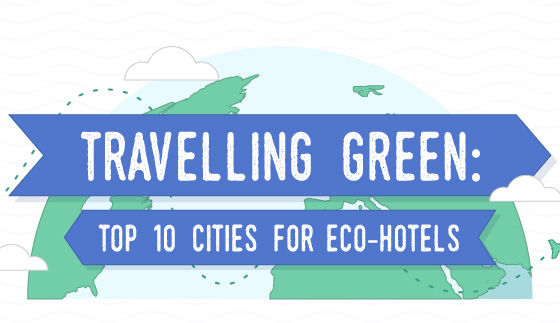My first experience in an eco-hostel was in Ghent, Belgium, a self-sustained boat in one of the city’s canals. Ghent is not on this list (and they talk about hotels, not hostels), but if you ever go there, look for that green accommodation on the water. That’s my personal recommendation.
This infographic, put together by Travel Supermarket, shows the top 10 European cities for an eco-friendly stay. But keep in mind you can always make your trip greener, even if you can’t find an eco-hotel. How? These are Travel Supermarket’s tips:

